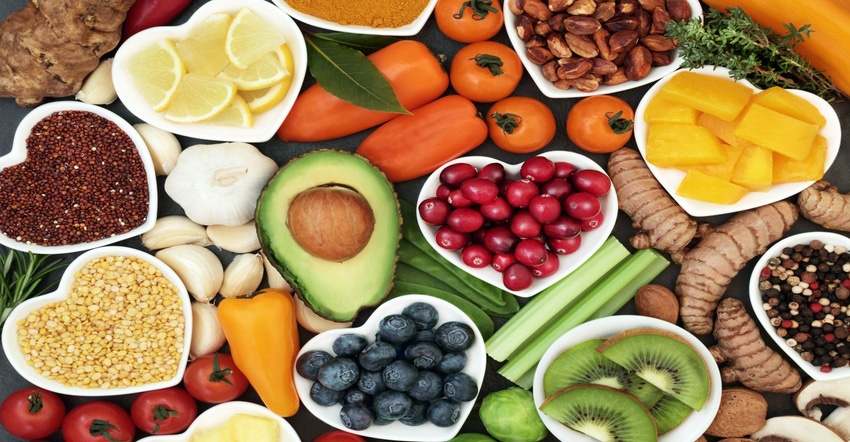How can the nutrition biz reframe its message to bring more health to more people? Experts weigh in at an annual conference hosted by the Council for Responsible Nutrition.

PHOENIX—At its core, the mission of natural food and beverage brands, and dietary supplement companies, is to move along a continuum from essential health to prevention of degenerative diseases to optimal living to an enhanced life.
The recipe to start on this path is pretty well documented, if surprisingly accessible.
Sleep well. Get up and move. Drink water. Eat fruits and vegetables to get your essential vitamins and minerals.
As if.
“Grandma has been saying forever to eat our veggies and we still don’t eat our veggies,” said Floyd Chilton, Ph.D., director of the Center for Precision Nutrition and Wellness at the University of Arizona, at the annual Council for Responsible Nutrition (CRN) conference in Phoenix on Oct. 11. “We should have gotten to the point of exhaustion that we are not doing anything to modify that.”
Only about one in four Americans consumes the daily recommendation of five to nine fruit and vegetable servings every day. Even that sounds like a bit of a reach—unless you start counting ketchup as a vegetable.
The promise and potholes may come from the appeal of scientific investigation. While the mainstream, pharma-based American model may look at nutrition science as a “soft” science, there is no doubt that positive nutrition can both prevent diseases and improve overall vitality.
“Essential health is where our dietary guidelines are. We’re not trying to prevent (nutrient deficiency diseases) scurvy and pellagra and beri beri,” said Emili Ho, Ph.D., director of the Linus Pauling Institute, at the CRN conference. “Optimal health is much more than about preventing deficiencies and disease. How do we think about optimal health?”
Science can sell. It’s not the end-all and be-all, and sometimes the science gets misinterpreted in the popular press, and sometimes the message is enough to turn consumers all the way off.
“The complaint I always hear is the nutritionist says one thing and then says another thing later,” said Barbara Shukitt-Hale, Ph.D., at the Neuroscience and Aging Laboratory at Tufts University. “We need to be consistent over time. Eggs are good for you; eggs are not good for you.”
Shukitt-Hale has conducted reams of research, mostly on rats, investigating simple nutritional interventions on aging animals.
“All our animal studies showed us that nutritional interventions can reverse deficits in learning and memory and declines in motor behaviors,” she said at CRN’s conference. “These are easily achievable quantities of berry fruits like blueberries and strawberries, which can improve some aspects of cognition in healthy older adults.”
Shukitt-Hale said one-half cup to two cups a day of blueberries and strawberries have been shown to reverse some age-related deficits in cognition as well as preserve function among the healthy geriatric set.
Sounds easy, right? And yet.
“A lot of the time,” said Shukitt-Hale, “the message gets mixed up.”
Who’s to bless and who’s to blame? How can the message of simple nutritional intake leading to better lives break through?
“It’s like you put six keys in a lock and you have to turn them simultaneously for the lock to open,” said Stephen Lindemann, Ph.D., assistant professor in the department of food science and nutrition science at Purdue University. “So branding is extraordinarily complex.”
Maybe a middle-aged shopper is thinking about forestalling chronic diseases, but a young professional is more interested in powering through the afternoon, and a mother just wants to make sure her toddler does not get sick.
And certain diverse communities have different health concerns, be it outsized incidence of obesity or diabetes. Lindemann advocates research targeting these groups to make nutrition resonate with those communities.
And then, Lindemann says, the onus is on brands to communicate that message. Another way might be to just go stealth with the message because otherwise it might not take. Too many Americans would rather experience the salty crunch of a chip than the crisp sweetness of an apple. And who knows what to do to get a vegetable to taste anything like a burger with bacon?
“The approach,” said the University of Arizona’s Chilton, “is to treat everyone like toddlers and hide the veggies. We need to deliver the health benefits in a way that palatability is not impacted. It’s a challenge from a food science perspective, but we need to get vegetables in a product without them being expected and declined.”
You have your marching orders.
About the Author(s)
You May Also Like






.png?width=800&auto=webp&quality=80&disable=upscale)